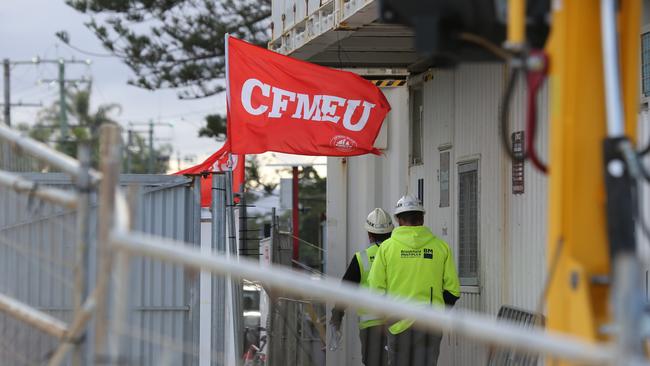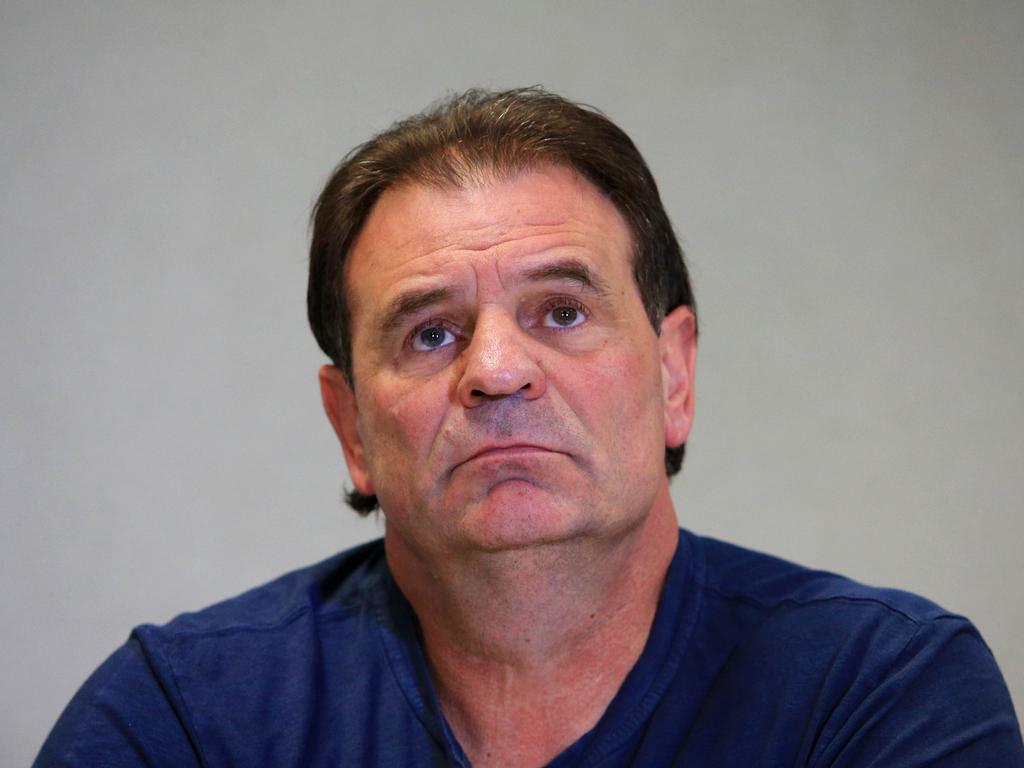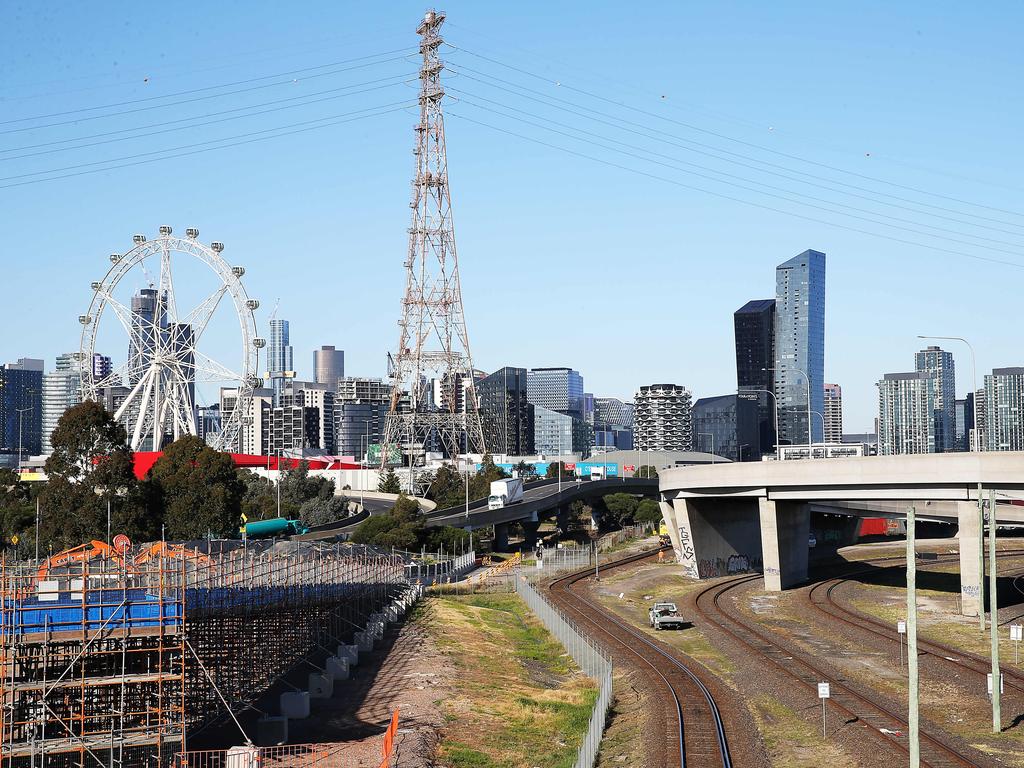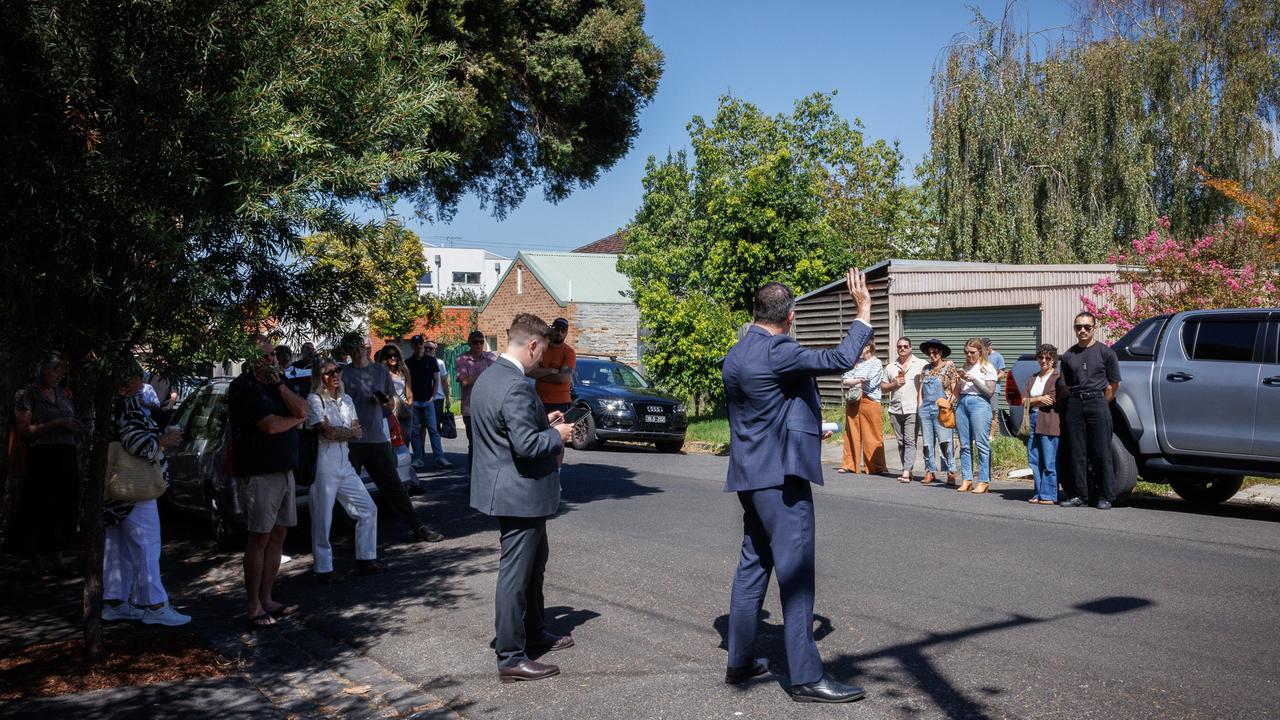Federal court cuts CFMEU and shop steward penalties over refusing non-union member electricians
Federal Court cuts penalties imposed on CFMEU and a shop steward last year after they refused non-union members.

A Federal Court full bench, headed by chief justice James Allsop, has cut penalties imposed on the CFMEU and a shop steward by a judge appointed last year by Attorney-General Christian Porter.
Judge John Snaden imposed the $63,000 maximum penalty on the union and a $6000 penalty on shop steward Kevin Pattinson for preventing an apprentice and electrician from working on a Melbourne student accommodation project because they were not union members.
In his October 2019 judgment, he said the CFMEU had engaged in a “war against free association” on the nation’s building site and that the union was a “serial offender” with a long history of contravening workplace laws.
In its decision on Friday, the full bench said Judge Snaden’s error was that in the name of
utilising a notion of the union’s recidivism, it was seen as in accordance with principle to impose a penalty at the highest level because of the number of prior contraventions.
The full bench said this approach was taken without any real evaluation of, or weight being given to, the objective characteristics of the conduct by the union and Mr Pattinson.
“Thus, the penalty for the instant contravention became subsumed by a proposition that the time had come, once the perceived threshold level of prior contravening was reached, that henceforth all contraventions would be treated as of the worst category or warranting the maximum penalty, irrespective of the nature and the character of the human conduct that constituted the contravention in question,” the full bench said.
Allsop said the past has been used “beyond the point of characterising the nature of the contravening ...and has become the reason for the maximum penalty irrespective of the nature and seriousness of the instant contravening”.
The full bench said Judge Sanden’s approach elevated past offending to be the defining consideration of the character or gravity of the contravening, irrespective of the actual reality of what constituted the contravention.
“It was not an assessment of the gravity of the circumstances, including (but not limited to or defined by) what could be drawn legitimately and contextually as to the instant contravention from past contraventions; rather, it was to draw from the past a conclusion that, regardless of how objectively serious or not the conduct in question was otherwise, the maximum penalty should henceforth be imposed,”
Mr Pattinson admitted that on September 13 last year he asked the two workers during a site induction: “Are you union? Do you have a ticket for your fees? Have you paid your fees?”
After the electrician said “no, we’re not a union-based company so we don’t have our ticket”, Mr Pattinson told them they had to be union members to work on the project. The two employees were prevented from performing work on the site.
The full bench found while the contravening by Mr Pattinson was “at least, reckless”, the episode was short and he had no history of law-breaking. It imposed $4500 in penalties.
Imposing penalties totalling $40,000 on the union, the full bench said “the events and conduct in question can be seen to be more serious or grave in the hands of, or attributed to the union”.
In light of the history of contravening conduct in attempted enforcement of the union’s no ticket no start policy and the absence of any evidence of contrition, the character and gravity of the contravening conduct in the hands of the union is more serious than it is for Mr Pattinson.
Mr Pattinson’s conduct was an example of an union policy in direct opposition to the Fair Work Act’s freedom of association provisions and reflected a willingness to contravene them.
But the full bench said it also had regard for the single episodic nature of the conduct, the lack of any proof of financial impact on anyone, the public policy in the co-operation shown, and the maximum penalty.








To join the conversation, please log in. Don't have an account? Register
Join the conversation, you are commenting as Logout